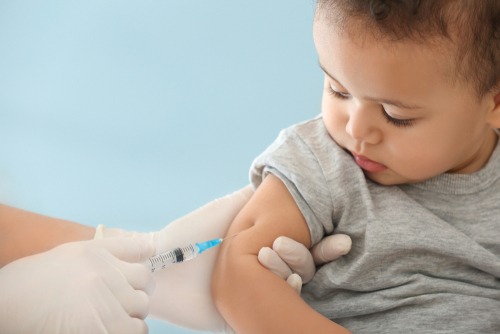
The U.S. Food and Drug Administration’s (FDA) Vaccines and Related Biological Products Advisory Committee (VRBPAC) will hold a virtual meeting on Feb. 15 to discuss the possibility of allowing Pfizer-BioNTech’s COVID-19 vaccine to be used on children as young as 6 months old.
The companies requested another emergency use authorization (EUA) for their vaccine that would allow its use on children between 6 months and 4 years old. The FDA authorized the vaccine for use among children between 5 and 11 years old last year, and more recently, allowed the use of a booster dose on those between 12 and 15 years old and older.
“Having a safe and effective vaccine available for children in this age group is a priority for the agency, and we’re committed to a timely review of the data, which the agency asked Pfizer to submit in light of the recent Omicron surge,” Dr. Janet Woodcock, Acting FDA Commissioner, said. “Furthermore, children are not small adults. Because they’re still growing and developing, it’s critical that these vaccines are evaluated in well-designed and well-conducted clinical trials. In the meantime, the best way to protect children, including when they are at school or daycare, is to practice social distancing and masking in accordance with public health recommendations and for their family members and caretakers to get vaccinated or receive a booster dose when eligible.”
The virtual meeting’s agenda and committee roster will be available to the public sometime before the meeting, along with other background materials. Typically, these committees include members with scientific, medical, and public health expertise, accompanied by a consumer and industry representative.
“The need for a safe and effective vaccine for our youngest children is significant, particularly given the rapid spread of the omicron variant, the notable rise in the number of hospitalizations in young children with severe disease, and the possibility that future variants could cause severe disease in those who are unvaccinated,” Dr. Peter Marks, director of the FDA’s Center for Biologics Evaluation and Research, said. “As we have done for other COVID-19 vaccine authorizations, this meeting will help ensure that the public has a clear understanding of the data and information the FDA will evaluate as it considers whether to authorize the vaccine. We are committed to a transparent process, which will include input from our external advisors.”
As of mid-December last year, the Centers for Disease Control and Prevention (CDC) noted that approximately one-third of U.S. children between 5 and 11 years old had been vaccinated for COVID-19. Currently, approximately 18 million children under 5 years old might qualify under this latest EUA attempt.




